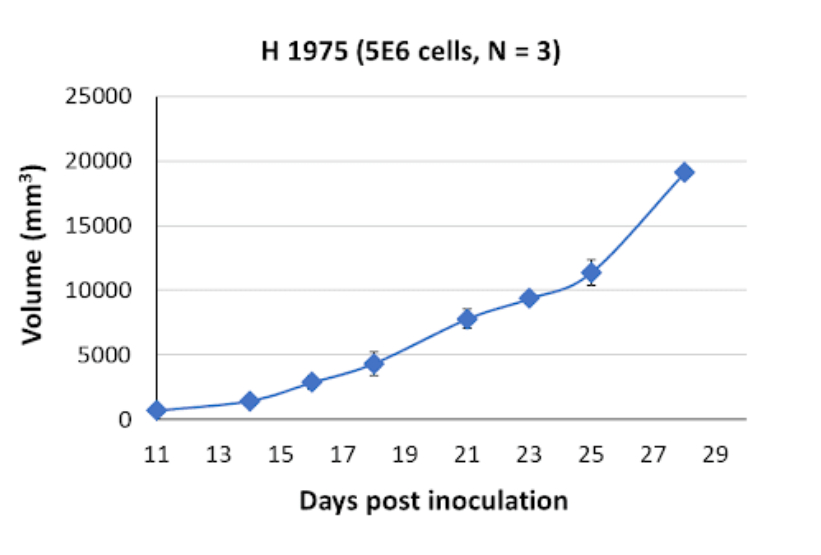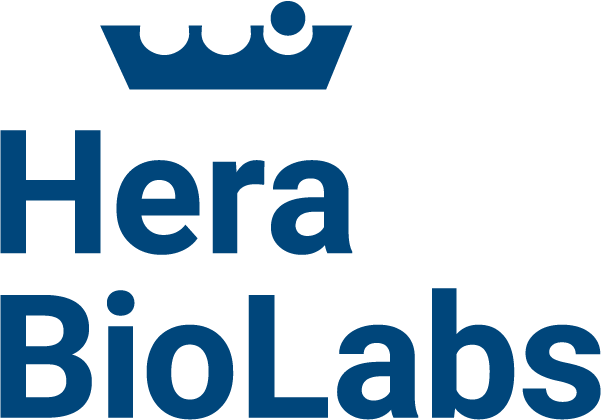About NCIH1975
The NCI-H1975 cell line serves as a valuable resource for postdoctoral researchers investigating non-small cell lung carcinoma (NSCLC) and, more specifically, the mechanisms underlying drug resistance in this disease. Derived from a lung biopsy of a patient with adenocarcinoma who had previously undergone chemotherapy and radiation therapy, H1975 cells represent a relevant model for studying the complexities of treatment resistance in NSCLC.
The H1975 cell line has multiple mutations in the epidermal growth factor receptor (EGFR) and TP53 genes. Specifically, H1975 cells harbor the EGFR exon 21 L858R mutation. This mutation is associated with increased sensitivity to EGFR inhibitors, a class of drugs commonly used in the treatment of NSCLC. Understanding the molecular mechanisms underlying the sensitivity of H1975 cells to EGFR inhibitors can provide valuable insights into the design and development of targeted therapies for NSCLC patients carrying similar mutations.
In addition to EGFR mutations, H1975 cells also exhibit TP53 mutations. TP53 is a critical tumor suppressor gene involved in regulating cell cycle progression and DNA repair. The presence of TP53 mutations in H1975 cells is of particular interest due to its association with more aggressive tumor behavior. Investigating the functional consequences of these TP53 mutations in the context of drug resistance can shed light on the interplay between TP53 status and treatment outcomes in NSCLC. The H1975 cell line holds significant relevance in the study of drug resistance mechanisms in NSCLC, particularly regarding EGFR inhibitors.
While initial responses to EGFR inhibitors in NSCLC patients with EGFR mutations can be promising, the emergence of drug resistance poses a significant clinical challenge. By utilizing the H1975 cell line, researchers can investigate the underlying molecular mechanisms that drive resistance to EGFR inhibitors, aiming to identify novel therapeutic targets and strategies to overcome this resistance. This includes examining alterations in downstream signaling pathways, adaptive changes in alternative receptor tyrosine kinases, or activation of bypass pathways that contribute to drug resistance.
NCIH1975 Tumor Kinetics in the SRG™ Rat

Furthermore, H1975 cells offer a platform to explore the broader landscape of genomic alterations and signaling pathways involved in NSCLC. By employing advanced molecular profiling techniques, researchers can uncover additional genetic alterations, such as mutations in other oncogenes or tumor suppressor genes, that may play a role in the development of drug resistance and aggressive tumor behavior. Integrating transcriptomic and proteomic analyses can further elucidate dysregulated signaling pathways and potential vulnerabilities that can be exploited for therapeutic interventions.
Products & Services
Xenograft Efficacy Studies
Includes collection of blood, tissues & tumor for ADME, PK/PD and analysis.
(Bi)weekly Tumor Sampling
Via fine needle aspiration (FNA). For longitudinal evaluation of drug exposure, histology and gene expression.
OncoRats
Cutting edge models optimized for engraftment.
Get help with your research by scheduling a call with Hera.
References (MLA):
- Fong, Jason T., et al. “Alternative Signaling Pathways as Potential Therapeutic Targets for Overcoming EGFR and C-MET Inhibitor Resistance in Non-Small Cell Lung Cancer.” PLOS ONE, 4 Nov. 2013, journals.plos.org/plosone/article?id=10.1371%2Fjournal.pone.0078398.
- Li, W.-Q., and J.-W. Cui. “Non-Small Cell Lung Cancer Patients with Ex19del or Exon 21 L858r Mutation: Distinct Mechanisms, Different Efficacies to Treatments – Journal of Cancer Research and Clinical Oncology.” SpringerLink, 28 June 2020, link.springer.com/article/10.1007/s00432-020-03296-6.

